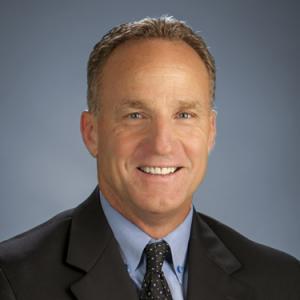Five Words that Describe a Reverse Mortgage
These 5 words can help dispel the myths about reverse mortgages
IRVINE, CALIFORNIA, UNITED STATES, November 25, 2020 /EINPresswire.com/ -- Here are 5 of the most common myths & misconceptions about reverse mortgages, and the truth behind these myths.
The 5 words that explain a reverse mortgage are in each answer below.
1. “A reverse mortgage requires giving up ownership of your home.”
NOT True. It is just a loan. When you obtain a reverse mortgage, your name remains on the title and the deed to the home is still yours—just as it would be with any mortgage. You’re required to continue paying real estate taxes, homeowner’s insurance, homeowner association dues, and providing basic maintenance to your home, just as it would be with any mortgage you obtain. Once you no longer live in the home as your primary residence, the loan balance, including interest and fees, must be repaid, just as it would be with any home loan you obtain.
2. “A reverse mortgage should only be used as a last resort.”
NOT True. It is just a loan. Many homeowners age 62 and older are now using a reverse mortgage strategically as part of a sound financial plan. It can be used as a “standby” line of credit that acts as a cash reserve (or safety valve) that you can tap as needed. Unlike a traditional Home Equity Line of Credit, the unused reverse mortgage credit line limit actually grows over time. It’s like a “fine wine” – it actually gets better with age, if you do not use the money and let the credit line grow. This equity line is great for emergencies or monthly advances to help you delay taking social security until a later year. It’s also a nice “just in case” credit line to help supplement other retirement income and allow you to extend you financial longevity.
3. “There are restrictions on how I can use the money from a reverse mortgage.”
Not True. It is just a loan. Reverse mortgage proceeds can be used the way that the homeowner designs it to work. There are multiple ways for you to access your equity and convert it to spendable cash. Among the most common uses are paying off an existing mortgage or other debt in order to have no monthly mortgage or debt payments. Or you might choose to create a “standby” cash reserve for future emergencies or to delay taking social security, or to simply supplement your monthly retirement income to make things easier for you. It’s up to you – you can even use the funds to invest in home improvements; or cover medical bills, or subsidize your long-term care expenses. Use the funds in a way that makes you happy (and less worried) so that you can extend your financial longvevity.
4. "I could wind up owing more than my house is worth leaving my kids with my debt.”
Not True. It is just a loan. The heirs or adult children never, ever sign any forms obligating them to the any terms of reverse mortgage. Reverse mortgages are insured by the Federal Housing Administration. It’s just a loan, and like all loans, it must be repaid when the house sells or when the last remaining owner vacates the home. In both cases, no matter what he value is at that time, the heirs are not responsible for any financial obligations stemming from a reverse mortgage. No debt will be left to your heirs or your adult children. And if the loan balance is less than the market value of the home, the additional equity is retained by the homeowner/heirs (if the home is sold).
5. “Reverse mortgages are only for people who owe money on their home or for people who DON’T owe money at all.”
Not True. It's just a loan. To qualify for a reverse mortgage, you are allowed to have a mortgage now; in fact, most of the time, there is a mortgage owing and we pay if off with a new reverse mortgage. But, the flip side is also true – even if you own your home “free and clear,” you can obtain a reverse mortgage. Either way, whether you own your home free and clear, or if you have an existing mortgage, we pride ourselves in helping determine if a reverse mortgage is the right loan, for the right person, at the right time, and for the right reason. Our purpose is to educate you about reverse mortgages (and the alternatives as well), so that you can extend the longevity and retire more comfortably.
Paul Scheper
Loangevity Mortgage
+1 800-662-6784
email us here
Legal Disclaimer:
EIN Presswire provides this news content "as is" without warranty of any kind. We do not accept any responsibility or liability for the accuracy, content, images, videos, licenses, completeness, legality, or reliability of the information contained in this article. If you have any complaints or copyright issues related to this article, kindly contact the author above.


